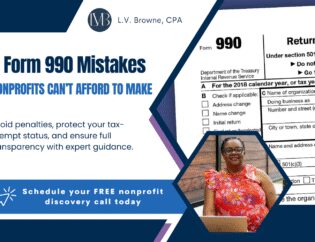
Retirement is a time to enjoy the fruits of your labor, but managing taxes effectively is key to stretching your savings. With various accounts and tax rules, planning for taxes in retirement can be complex. Here, we’ll break down actionable tips to help you make the most of your retirement funds.
Understanding Traditional IRAs and 401(k)s
Contributions to traditional IRAs and 401(k)s are typically made with pre-tax dollars, which lowers your taxable income for the year. These accounts grow tax-deferred, meaning taxes are only paid when you withdraw funds. However, withdrawals are taxed as ordinary income, which could push you into a higher tax bracket depending on the size of the distribution.
It’s important to note the following:
- Required Minimum Distribution (RMD): Starting at age 73, you must take RMDs from traditional accounts. Failure to withdraw the required amount can result in penalties of up to 25% of the amount that should have been withdrawn—or 10% if corrected within two years.
- Early Withdrawals: Withdrawing funds before age 59½ usually incurs a 10% penalty plus taxes. However, certain exceptions apply, such as qualified expenses for first-time home purchases, higher education costs, or medical expenses exceeding a certain percentage of your adjusted gross income (AGI).
Maximizing the Benefits of Roth Accounts
Contributions to Roth IRAs and 401(k)s are made with after-tax dollars, meaning you don’t get an immediate tax deduction. However, the long-term benefits can be substantial: both contributions and earnings grow tax-free.
Here’s why Roth accounts are a powerful tool in retirement planning:
Flexibility: Roth IRAs allow you to withdraw your contributions (but not earnings) at any time without penalties or taxes, giving you added financial flexibility.
Tax-Free Withdrawals: If your account is at least five years old and you are 59½ or older, all withdrawals—including earnings—are tax-free.
Early Withdrawal Strategies
If you need to access retirement funds before age 59½, consider these penalty-avoidance strategies:
- 401(k) Loans: Some plans allow you to borrow from your account without penalties, provided the loan is repaid within five years.
- Qualified Exceptions: Penalty-free withdrawals may be available for specific purposes like medical expenses, higher education costs, or a first-time home purchase.
Need Help Navigating Taxes in Retirement?
Managing taxes in retirement doesn’t have to be overwhelming. Lakeesha V. Browne, CPA, offers personalized guidance to help you optimize your financial strategy. If you have specific questions or need assistance, contact Lakeesha V. Browne, CPA. Send your questions here or schedule a free consultation today!










